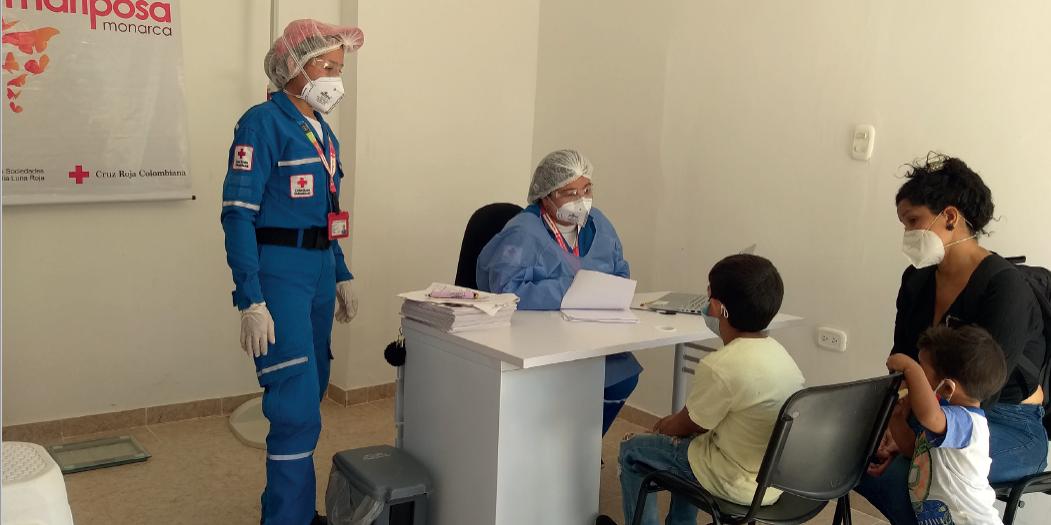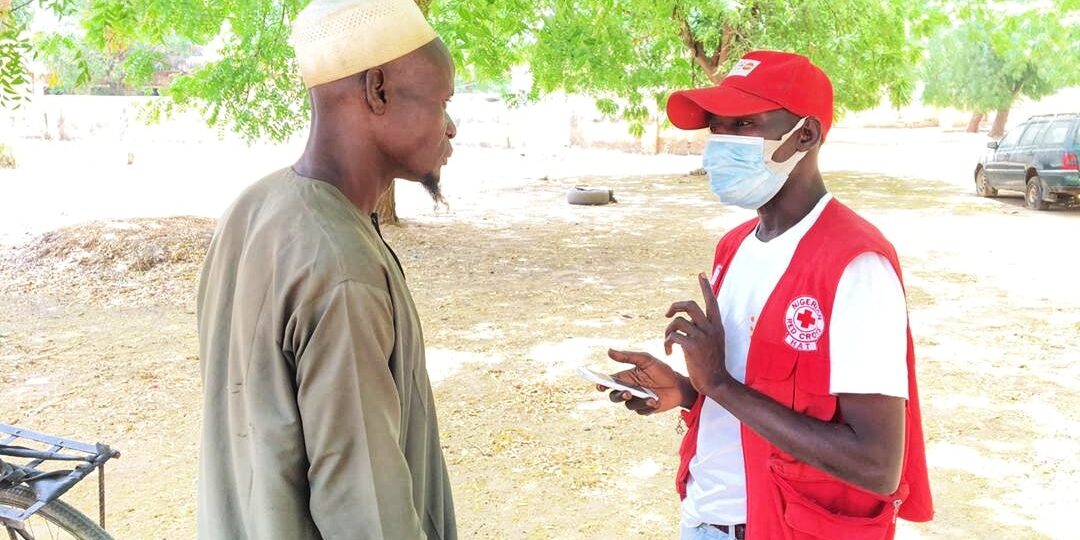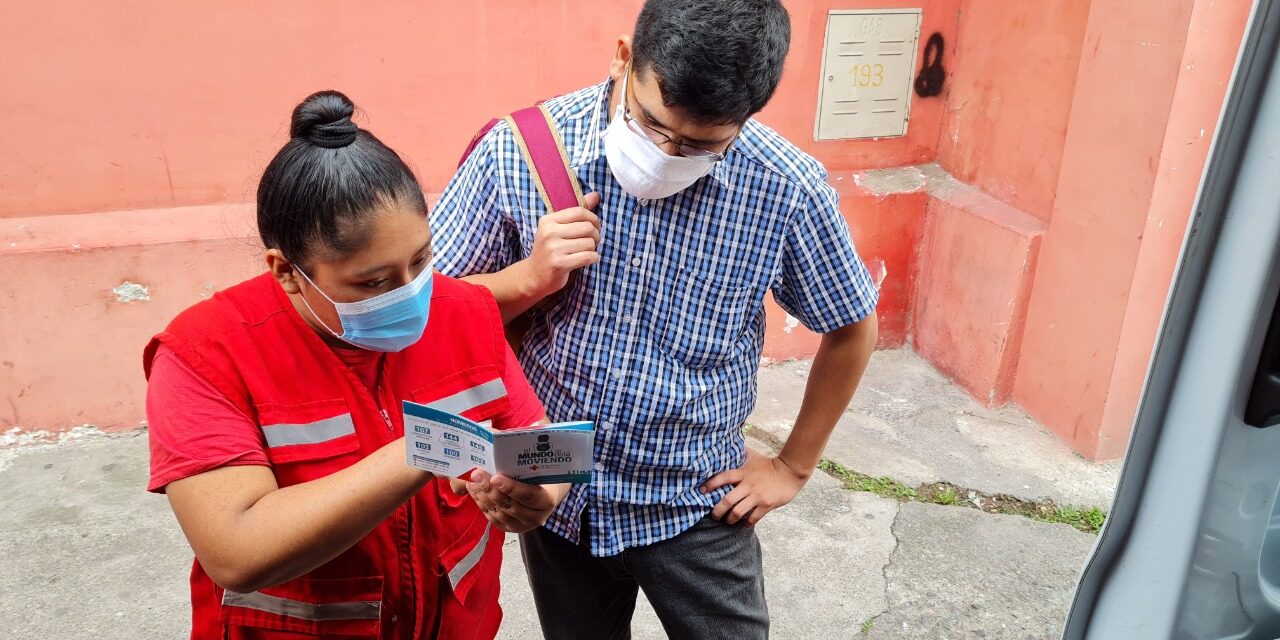Safeguarding

Safeguarding describes all the work we do to uphold and promote a person’s right to live in safety free from abuse and neglect with a focus on children and ‘adults at risk’.
All RCRC Movement actors have a responsibility to put in place a range of protection measures from abuse and maltreatment of any kind for the people who work for us, use our services, and interact with us.
This is a weighty responsibility in any of our services, but maybe particularly important and challenging in an HSP because of the diversity and particular vulnerabilities of the adults and children that are using our services. For example, people in an irregular situation are in a particularly powerless and risky situation.
When people are on the move they are less likely to report abuse or complain about mistreatment.
Do No Harm is the core protection principle, and safeguarding should take a person-centered approach. This means putting the needs of the service user first, including:
by making people aware of their rights and what the limits of acceptable behaviour are – both toward them and by them.
by making it easy for people to report a concern or complaint.
within a clearly defined timeframe and ensure that the person complaining knows what the process will be
dismiss or act disbelieving in the face of a complaint or concern.
by asking the person complaining what they would like you to do with the information and respecting their decision about whether to take it farther.
There may be reasons to override their consent such as the abuse was perpetrated by a representative of Red Cross, money laundering or trafficking may be involved, children are at risk, other adults who can’t protect themselves are at risk, the adult at risk lacks the capacity to keep themselves safe etc.
* Remember – even if the case isn’t taken further, it is a valuable opportunity to identify possible issues or gaps in safeguarding.
Prevention of Sexual Exploitation and Abuse (PSEA)
SEA is any form of sexual exploitation or abuse caused, intentionally or unintentionally, by RCRC Movement people, operations or projects. This includes SEA of persons (adult or child) that come into contact with or benefit from our protection or assistance, as well as SEA of RCRC personnel.
SEA is a form of gender-based violence and affects not only the survivor but also family, friends and communities. As well as harming the people we serve, SEA erodes trust in the RCRC Movement and emblem. It can have serious reputational, financial, and legal consequences.
Mechanisms must be in place to allow people to complain about exploitative or abusive behaviour, or to report any concerns. We must respond quickly and effectively to any reports we receive.
In line with the IFRC 2018 Policy on Prevention and Response to Sexual Exploitation and Abuse, NS and partners working in HSPs or receiving referrals should have zero tolerance for sexual exploitation and abuse. This means not only that abuses are detected, but also that perpetrators are held to account.
Reporting Sexual Exploitation and Abuse
Reports can be made through the relevant authority in the IFRC:
- Human Resources Department; or
- Red Cross and Red Crescent Integrity Line
- The personnel’s own line manager(s); or
- Any Senior Manager; or
- The OIAI department: concerns@ifrc.org; or
Police authorities should be contacted as well, where the local law requires, and/or if the circumstances and the possible seriousness of the allegations require this.
All reports and concerns raised by both personnel and individuals in the community will be properly considered, documented, and treated seriously, with care, discretion and in a timely manner. The IFRC will take all necessary steps against any form of retaliation suffered by personnel or other persons reporting possible breaches.
How to fulfill this responsibility
The IFRC code of conduct specifies that personnel shall:
- Not commit any act of sexual exploitation or abuse.
- Not engage in any sexual activity with:
- Persons under the age of 18 years, regardless of the age of majority or consent locally (ignorance of or mistaken belief in the age of a child is not a defense).
- Adults who look to benefit or already benefit from IFRC’s protection or assistance.
- Sexual activity includes all forms of activity and abuse of a sexual nature, with or without physical contact, and whether either party is aware of such abuse.
- Not exchange money, employment, goods, or services for sex, including sexual favors or other forms of humiliating, degrading, or exploitative behavior. This applies regardless of the legal status of prostitution in the laws of the IFRC staff members’ home country or duty stations.
- Not produce, procure, distribute or use pornographic material in IFRC offices or on IFRC equipment, including reading/surfing pornographic websites or message boards or sending or engaging with pornographic emails.
Interagency PSEA mechanisms
Interagency reporting mechanisms channel and follow-up complaints on behalf of a number of organizations and agencies. These mechanisms channel feedback from a variety of sources, including communal mechanisms, and those of individual organizations.
In 2019 a regional project – the Regional Safe Spaces Initiative – was launched in six pilot countries along a migration route in the Americas: Guatemala, El Salvador, Costa Rica, Ecuador, Venezuela, and Brazil. The aim is to link standardized and contextualized procedures to prevent sexual exploitation, abuse, and harassment, and to provide safe and confidential interagency community-based complaint and response mechanisms. Several RCRC NS were involved.
HSPs can be involved in and contribute to this type of initiative, but even if they are not, it should be anticipated that migrants might make a complaint that will require a response

Professional Boundaries
An HSP aims to create a welcoming environment for migrants. In this environment, staff and volunteers may find it difficult to maintain professional boundaries with people using the centre.
This can be very sensitive because the RCRC aims to break down barriers and tackle the discrimination that results in migrants being treated differently, and often badly.
But it is important to recognize that the relationship between those involved in delivering services and a service user is not one of equal balance.
RCRC staff and volunteers must recognize and understand they are in a position of power and have more responsibility than the service user for their conduct and behavior.
- Spending time socially at a service-user’s residence and making free use of their space.
- A physical/sexual relationship with a migrant or any other RCRC service user. This can include flirtatious behavior or innuendo, physical contact that could be seen as sexually suggestive. Remember that ideas of what is appropriate or inappropriate will be culturally different.
- Giving advice about housing, finances or medical or other treatment outside of the scope of RCRC programmes and the expertise of the person in question.
- Developing relationships with children we are serving outside of the RCRC project.
- Any sexual contact with a child (defined as someone under the age of 18).
- Misuse of images or identifiable information of service users.
- Online harassment.
Professional boundaries are established to prevent harm and keep people from getting hurt, even inadvertently.
Maintaining these boundaries also protects staff and volunteers from any allegations of inappropriate behavior toward vulnerable people.
- Screen all RCRC personnel that interact with children or adults in the HSP.
- Ensure all personnel knows that they have a duty to report potential code of conduct breaches, and how and where to do so. This includes any abuse of power toward migrants, service users, or RCRC personnel. Whistleblowers should be protected against reprisals.
- Create a guideline that explains RCRC policies and procedures for relationships between staff and volunteers and migrants. You can see an example here.
- Provide training to staff and volunteers that include role-plays and scenarios so they can safely explore the boundaries of the professional relationship.
- Encourage an environment where staff and volunteers feel safe to express concern if they see a relationship developing that may cross the line.
- Develop a programmatic response to migrants’ need for friendship e.g. a befriending program, social events with members of the community, and psychosocial support.
- Ensure consent forms for children participating in activities are accessible and signed by parents/caregivers.
Child safeguarding measures in HSPs
Safe Play Areas
Read more.
Safe play areas in HSPs should be in areas with easily controlled access, and where entrance and exit can be easily and continuously monitored. Staff and volunteers accessing those areas should be given enhanced screening and should be trained in child safeguarding.
Clear Guidance
Read more.
NS should post clear guidance in HSPs about what behaviour is/is not acceptable on the premises. For example, in some cultures, it is considered normal and acceptable to smack or beat children when they misbehave. In line with the IFRC Child Protection Policy, NS should not permit physical punishment on any part of the body of a child, or language or behaviour toward children that is inappropriate, harassing, abusive, sexually provocative, demeaning, or culturally inappropriate, including by parents or relatives of the child. This is important not only for the well-being of the child but also for the promotion of a safe and welcoming environment.
Key Resources on safeguarding and PSEA


